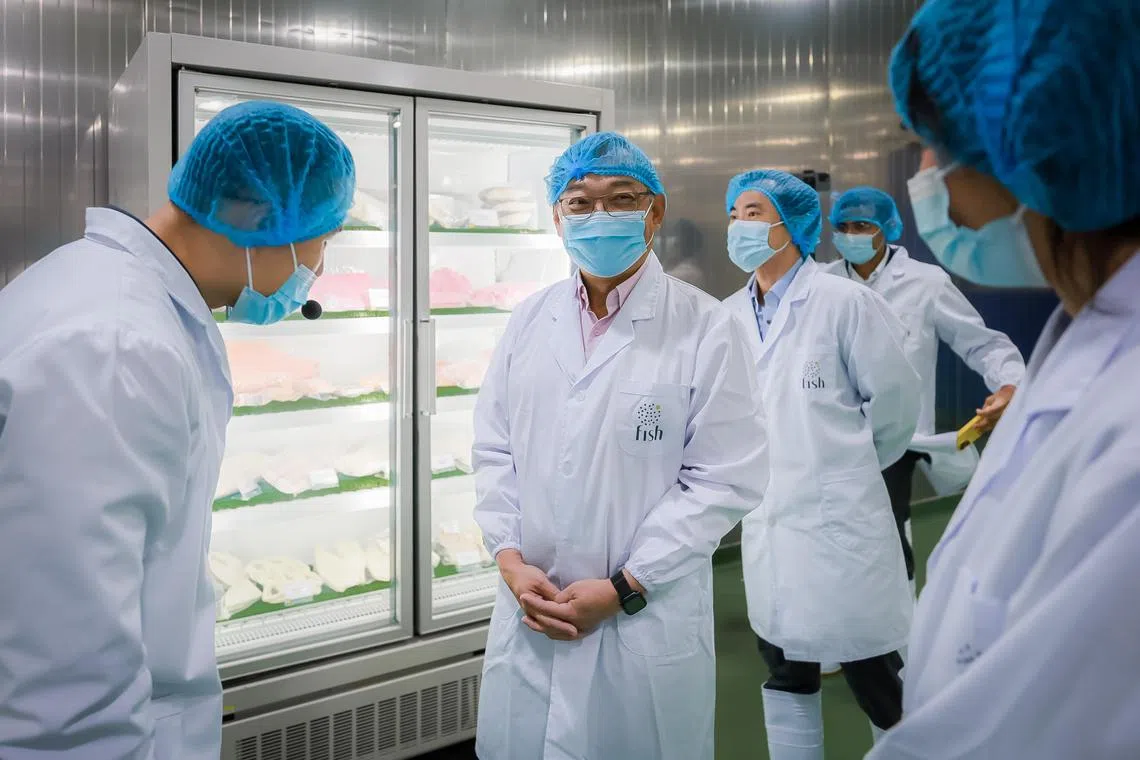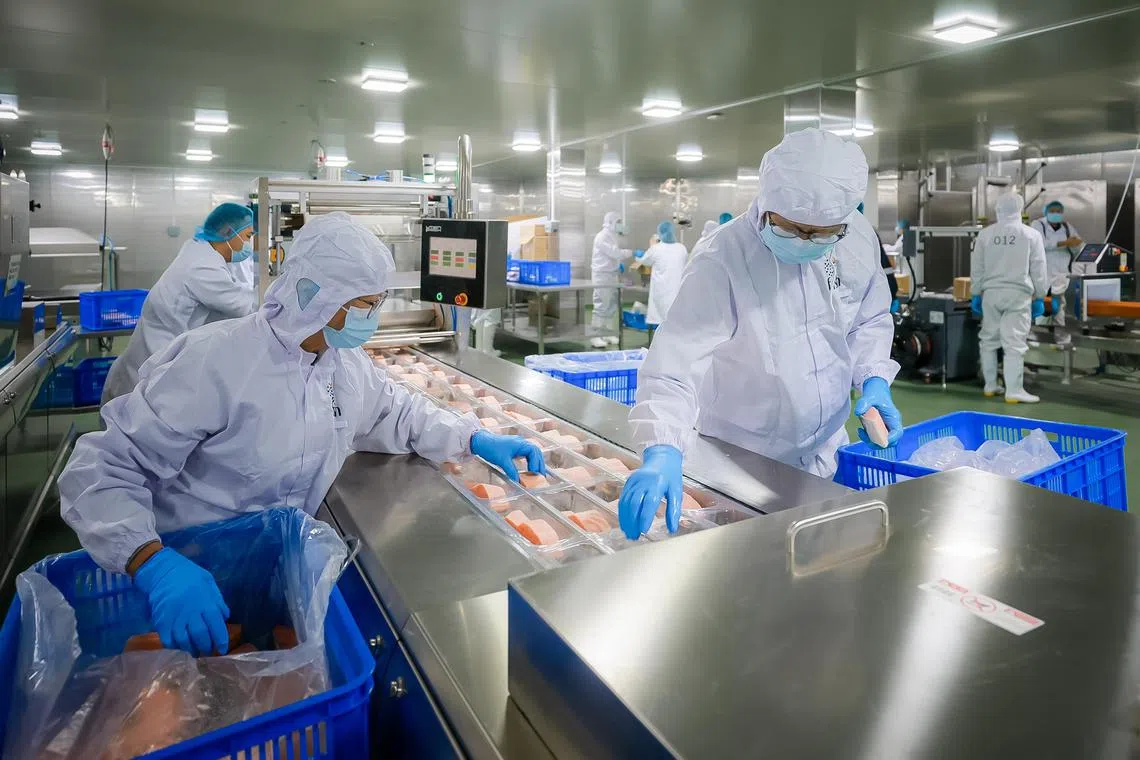Refreshed road map for wholesale traders to expand globally, upskill workforce
Sign up now: Get ST's newsletters delivered to your inbox

Trade and Industry Minister Gan Kim Yong (centre) touring Fish International Sourcing House’s new processing facility in Boon Lay, on Jan 5, 2023.
ST PHOTO: GAVIN FOO
SINGAPORE - Seafood trader Fish International Sourcing House (Fish) now requires 30 per cent to 40 per cent less manpower to slice up and package its products, thanks to the automated processing lines at its first seafood processing and innovation facility in Singapore.
More than $20 million was invested in the 240,000 sq ft facility – about the size of three football fields – which opened on Thursday. It features seafood processing lines connected through a conveyor system, with automated packaging lines, nitrogen freezers, and smoking and ageing facilities.
The products from the new facility in Boon Lay are expected to contribute 40 per cent of Fish’s overall projected revenue within two years of operations.
Fish’s research and development arm, Reelli, is also working towards producing plant-based food like fishballs made from tapioca starch and a protein blend, as part of its innovation efforts.
The initiatives come under the Wholesale Trade Industry Transformation Map 2025, which was launched on Thursday by Trade and Industry Minister Gan Kim Yong.
The refreshed industry transformation map (ITM), led by Enterprise Singapore (EnterpriseSG), will focus on expanding traders’ global footprint, anchoring global traders’ presence in Singapore, equipping workers with new skills in areas such as trade-related technology and sustainability, and growing the range of products traded.
To help Singapore companies enter new markets, EnterpriseSG will encourage more enterprises to grow their exports by facilitating new partnerships with business-to-business e-commerce players, so they can sell their products in overseas online marketplaces.
Under the new ITM, wholesale trade companies will develop sustainable products and redesign jobs to equip workers with skills for roles in digital and green-skill areas such as big data analytics, programming and coding, and carbon footprint management.
To attract young talent to join the sector, EnterpriseSG will also work with global-oriented Singapore traders to offer scholarships to undergraduates under the Singapore-Industry Scholarship programme from 2023. The programme targets young Singaporeans who are keen to contribute to leading organisations in strategic sectors.
The wholesale trade is the second-largest sector of Singapore’s economy, accounting for one-sixth, or $90 billion, of Singapore’s gross domestic product in 2021, said Mr Gan.
The sector comprises more than 50,000 firms, and in 2021 employed more than 300,000 workers, with nearly 70 per cent of the jobs being professional, managerial, executive and technical roles.
“Recent global developments have caused global supply chain disruptions and acutely driven up costs... The push towards digitalisation has accelerated globally, which means we need to deepen our adoption of digital solutions to stay ahead of the competition,” said Mr Gan, explaining how the wholesale trade industry has to change to keep up with the economic landscape.
He added that companies will also have to address the increasing demand for sustainable and eco-friendly products as consumers become more aware about climate change and the environment.

Fish International Sourcing House’s (Fish) new processing facility in Boon Lay.
ST PHOTO: GAVIN FOO
Fish, which is trading with 90 countries, now has 39 employees and plans to grow its workforce to 100 in the next few months, said Mr Alvin Loy, its chief executive.
Some of the new jobs that Fish will be offering are in manufacturing, supply chain management, digital marketing and social media management.
Fish sales director Jeremy Chua, 46, who has been with the company for more than 16 years, went through a two-month career conversion programme for wholesale trade professionals in November 2020 to learn digital marketing, which included learning how to market his company on social media platforms like Facebook and LinkedIn. He also learnt data analytics.

Fish sales director Jeremy Chua has been with the company for more than 16 years.
ST PHOTO: ROSALIND ANG
“Through the programme, I learnt how to understand customer behaviour by using data analysis to observe the kind of products they like to purchase – these skills doubled our product sales in just a year,” said Mr Chua.


